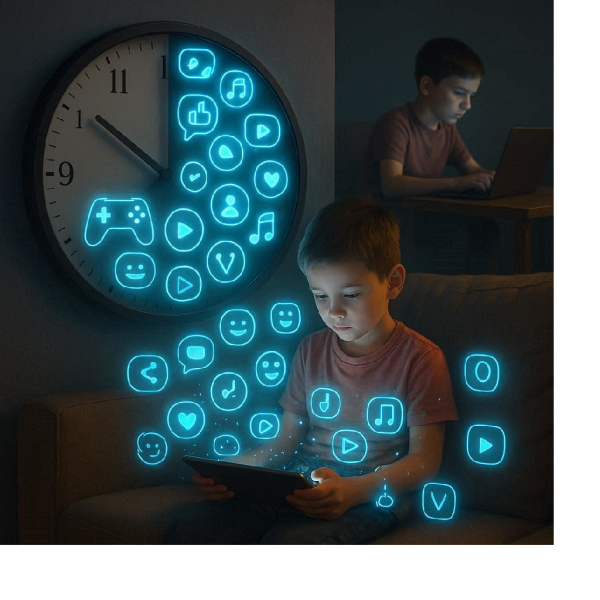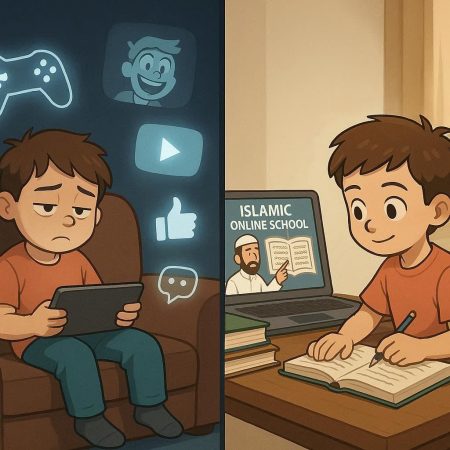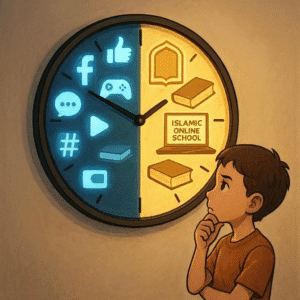
In today’s digital age, children spend long hours glued to screens, often without realizing how much time slips away. While some screen use can be educational, most of it is unproductive scrolling or gaming. Parents who want to balance their child’s digital exposure often look for structured and purposeful alternatives. That’s where an Islamic online school can become a powerful option—helping kids replace endless screen time with meaningful learning.
The Challenge of Excessive Screen Time
It is common for kids to spend their free hours on mobile phones or tablets. Gradually, this habit affects focus, sleep, and even behavior. As technology grows, parents worry about whether children are making the best use of their time. However, shifting from passive screen use to productive engagement is possible with the right approach.
Turning Screen Time into Productive Learning

Instead of banning devices completely, parents can guide children to use technology wisely. Educational platforms, online classes, and supervised activities encourage better habits. For example, enrolling children in an Islamic online school gives them structured schedules, Quran learning, academic support, and moral guidance—all through the same screen they usually waste time on.
Practical Tips for Parents
Set daily time limits for games and entertainment.
Replace passive watching with interactive activities like reading or creative projects.
Encourage regular breaks to rest the eyes and refresh the mind.
Involve children in faith-based learning programs to strengthen both discipline and values.
Why This Balance Matters

When screen time is managed effectively, children learn responsibility. At the same time, they gain knowledge and skills that shape their future. With supportive resources like MeeM Academia, parents can confidently turn everyday digital use into opportunities for growth.
Moreover, choosing the right learning environment plays a huge role. In fact, an Islamic online school not only provides education but also builds values, discipline, and spiritual growth. As a result, children develop both knowledge and character. Therefore, parents can be confident that screen time will, instead, transform into a source of lifelong benefit.
Frequently Asked Questions (FAQ)
1. How much screen time is healthy for children?
Experts suggest that children should have limited recreational screen time, ideally not more than 1–2 hours daily. The focus should be on balancing entertainment with educational and physical activities.
2. Can screen time ever be productive?
Yes. Screen time can be highly productive when it involves learning, creativity, or skill-building. For example, attending classes in an Islamic online school allows children to use their devices for structured and meaningful learning.
3. How do I encourage my child to use technology wisely?
Set clear rules, create a daily schedule, and introduce engaging alternatives like reading, outdoor play, or supervised online learning platforms. This helps children understand the value of time management.
4. What makes an Islamic online school different from regular online classes?
An Islamic online school combines academic subjects with Quranic and moral education. It helps children grow not only intellectually but also spiritually, giving them a balanced foundation in both faith and academics.
5. How can parents monitor screen time effectively?
Parents can use apps to track usage, set device limits, and engage in open conversations with their children. Encouraging family activities away from screens also helps reduce dependency.


0 Comments